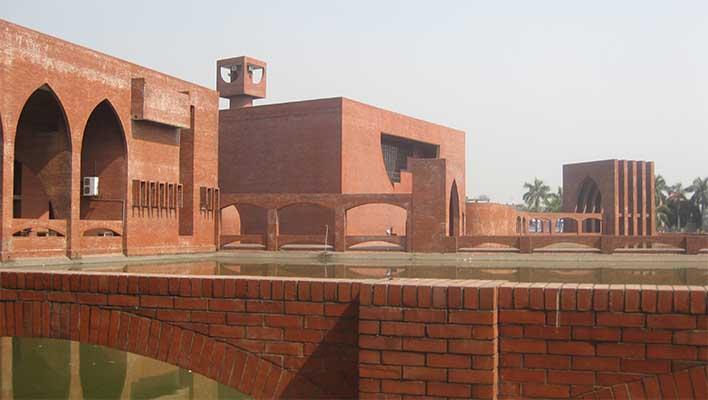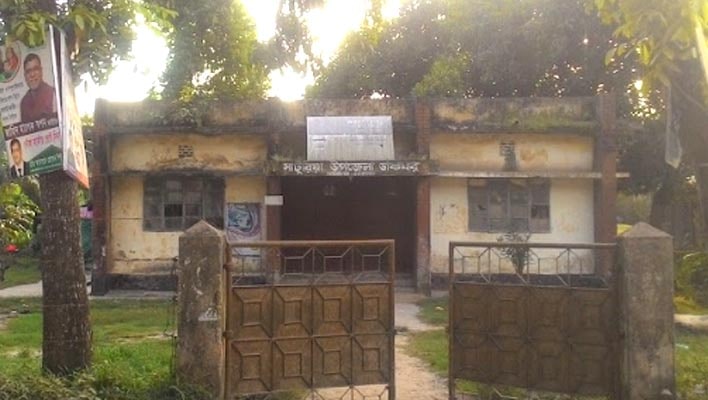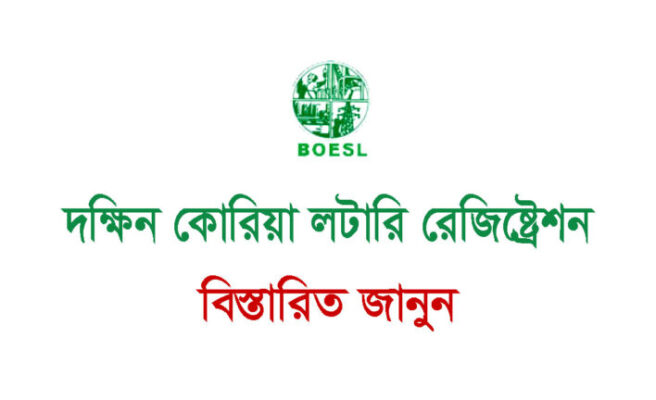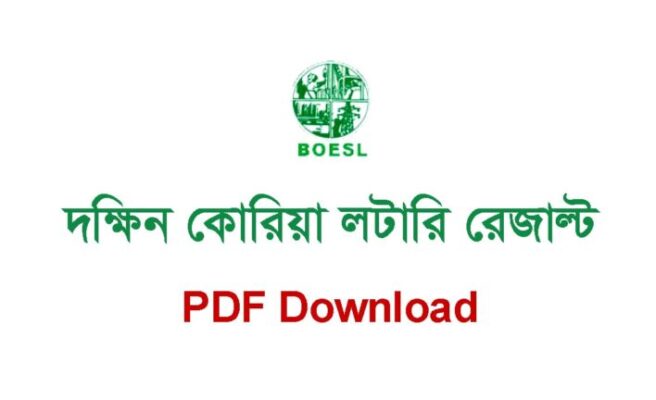Language warrior M Shamsul Haque MP
Shamsul Haque was born on 1 February 1918 at his maternal uncle’s house in Shakizora village of Elasin union in Delduar Upazila of present Tangail district. His father’s name is Dabir Uddin Sarkar Mata-Sharifunnesa.
Father Dabir Uddin was an ideal farmer of Maithan-Teuria village in Deoli union. Shamsul Haque, one of the four brothers and two sisters, has been good at studying since childhood. He received his early education at the Masjid Madrasa in his village and passed the third class from Teuria Niman Primary School. Elasin completed fourth and fifth grade at Swarnamoyi Secondary School and studied at Porabari Secondary School till 7th grade. Then in 1935 Sametmash was admitted to the eighth class of Jahnavi High School. From here, political awareness, course of action, and activities started in the life of Shamsul Huq. In 1936 he became a member of the first Muslim League. From this school in 1938, he successfully passed the matriculation examination and was admitted to Kortia Sadat College. Ibrahim Khan was the principal of the college then. Shamsul Huq’s political atmosphere continued to grow. He played a leading role in the establishment of the Student Parliament of the College in the need of the students and in 1939 he was elected unopposed as the Co-President (VP) of the Student Parliament. From this college in 1940, he passed IA in the first class.
He then entered the first year (honors class) of the history department of Dhaka University with a vow of life to enter the larger arena of politics. In a short time, Shamsul Haque became the best among the student leaders in the field of politics. Despite some shortcomings in his studies, he obtained his BA (Hons) degree in short-term preparation in the final examination of 1943. After that, he did not get MA degree.
Shamsul Haque’s rise to prominence on the political stage took place on March 22, 1940, when Sher-e-Bangla AK Fazlul Haque, the Prime Minister of Bengal, was present at a session of the Muslim League, raised the Lahore resolution. At that time Hossain Shaheed Suhrawardy and Abul Hashim met him as representatives of student leaders. The main theme of the Lahore resolution was “to establish an independent and sovereign Muslim state in the north-east and north-west of India.” The Muslim community of Bengal began to organize under the banner of the Muslim League. The Muslim League won the provincial and general elections in Bengal in 1945-1946. The people of Bengal recognized Shamsul Haque.
It is time to divide the country. On 14 August 1947, the independent state of Pakistan was established. East Pakistan and West Pakistan – 1200 miles apart. The West Pakistani faction and the Zamindar Baniya faction with the Muslim name of Tabedari Muslim in East Bengal ruled. From the very beginning, Maulana Abdul Hamid Khan Bhasani, Hussain Shaheed Suhrawardy, Abul Hasim, and others who had sacrificed for the common man, were expelled from the politics of the Muslim League. Following this, Shamsul Haque and the Muslim League were expelled from politics. So on this occasion, he made his debut in an organization called ‘Democratic Juba League’. Young and youth leaders joined him.
By 1950, the number of commuters in the Mughaltuli, Dhaka office was increasing. People on various questions such as language, literature, culture try to get closer to people about food issues. But it can’t last long. Later, Shamsul Haque, in collaboration with Abul Hasim, started a “workers camp” at the Mughaltuli office with Shaheed Suhrawardy and pro-Hasim people. Where leaders like Kamarmuddin Ahmed, Oli Ahmed, Mohammad Toaha, Tasadduk Ahmed, Tajuddin Ahmed, and Khandaker Mushtaq Ahmed, Sheikh Mujibur Rahman from Calcutta-centric politics started organizing.
Meanwhile, in East Pakistan, people began to speak out against the government’s decision to make Urdu the state language instead of Bengali. The ‘All-Party State Language Struggle Council’ was formed. Shamsul Haque continues to play an active role here. In March 1948, he was imprisoned for four days on the question of language. At one point in his speech at the Racecourse Maidan on March 21, 1948, the Governor of Pakistan, Muhammad Ali Jinnah, declared that “Urdu and only Urdu shall be the state language of Pakistan.” As soon as Jinnah’s speech was over, Shamsul Haq shouted ‘No’, ‘No’ and many others stood up and protested. Shamsul Haque played a strong role in meeting the representatives of the Student Struggle Council with Jinnah at 6.30 pm that day. Arguing for Shamsul Haque to make Bengali the state language, Jinnah addressed Shamsul Haque in an angry tone, saying, “You are the man who always creates trouble.” I remember that you created a trouble convention also along with Maulana Hasrat Moulana Abdul Hamid Khan Bhashani and Abul Hashim?
Moreover, with the all-party state language committee, Mr. Even at Jinnah’s meeting, Shamsul Haq disagreed with him on the question of language. It was canceled in 1949 when Maulana Bhasani won the first by-election in the southern Muslim constituency of Tangail, one of the 35 constituencies in East and West Pakistan.
When the by-election was announced on April 26, Shamsul Haque became the candidate. His own area but he is helpless. The workers received great encouragement, encouragement, and support from the camp leaders. In contrast, the Muslim League candidate is Khurram Khan Panni, the son of the famous zamindar of Kortia. Behind him is the government of Nurul Amin with the cabinet. Even then Shamsul Haque snatched the victory. But the result of the election was canceled by conspiring to rule left. As a result, Shamsul Haque continued his efforts to form a new political party to highlight the various failures and incompetence in running the state. One by one he contacted Sher-e-Bangla, Hossain Shaheed Suhrawardy, Mohammad Ali of Bogra, and others. After getting no response from them, he contacted Maulana Bhasani, a prisoner in Assam.
At one stage, when Maulana Bhasani was released from prison and returned to Dhaka, the Awami Muslim League was established on 23 and 24 June (1949) through a conference. Maulana Bhasani is the president, Shamsul Haque is the general secretary, and Khandaker Mushtaq and Sheikh Mujib are the joint general secretaries. Under the leadership of Shamsul Haque, the Awami Muslim League quickly gained popularity as an opposition party. On 11 October (1949), the Prime Minister of Pakistan, Liaquat Ali Khan, during his visit to East Pakistan, organized a public meeting and demonstration to protest the country’s plight and food crisis. Nurul Amin’s government arrested several people including Maulana Bhasani and Shamsul Haque when there was a disturbance with the police during the protest procession. Sends them to prison.
Shamsul Haque was released in March 1951. After a long period of imprisonment, he turned his attention to religion and family. At the same time, the activities of the team continue smoothly. But many opportunists became jealous of him and secretly started preparing to remove him from the leadership of the party. At one point, the tide of the language movement woke up. In March 1951, the Dhaka University State Language Committee was formed. The ‘All-Party State Language Struggle Council’ was formed on January 31, 1952. On 21 February, it was decided to hold a general strike in all parts of East Pakistan.
From the evening of 20 February, the Nurul Amin government-issued Section 144 in Dhaka. In a meeting of the Language Struggle Council, if there was a disagreement against the violation of section 144 (as the opinion of the opposition members was ignored), it was voted as per the proposal of Shamsul Haque and the opinion of the opposition was passed by 11: 4 votes. Despite this, Oli Ahad, Abdul Matin, Shamsul Alam, and Golam Maula took a firm stand for violating Section 144 and some people were martyred in the police firing in Dhaka University area on 21 February. Shamsul Haque and other leaders argued that Article 144 should not be violated. Besides, general elections are to be held next year, so it will be easy for us to use this movement to make Bengali the state language of the country by winning the elections. ” Agree personally to their position at the stage. He did not back down from the police firing. In the afternoon he came forward to serve the injured students at Dhaka Medical College. From then on, it is understood that Shamsul Huq’s contribution to the state and state language movement is incomparable, immeasurable, and unforgettable.
On 11 September 1949, Shamsul Haque married Afia Khatun (English teacher at Eden College, former acquaintance of Dhaka University). Their first daughter Umme Batul Tajma Tahera (Shaheen) was born on 9th April 1951 and their second daughter Umme Batul Fatema Zahura (Saika) was born on 22nd September 1952. Her two daughters are currently living in exile in the United States with Ph.D. degrees.
Shamsul Haque was imprisoned again on 19-03-1952 for the language movement. He was released from prison on 13 February 1953. Thousands of people were waiting for him outside the prison gate. Seeing him, the people applauded and shouted for joy. He greeted her with a smile in a natural manner. From there he went directly to his father-in-law’s house in Dhaka. He went there and saw that his wife and children had left the country for New Zealand. He had an argument with the people of his father-in-law’s house over this issue. At one stage Shamsul Haque was slightly injured. Gradually, he became lonely and lonely in his family and personal life and became a victim of political neglect.
At this time, he fell out of the flow of the real world and normal life due to severe mental pain and separation. His bizarre and expressionless life began. He spent the last days of his life in the fields, rivers, and boats. Unfortunately, in 1965, in the then East Pakistan, on the one hand, Ayub Khan’s military rule, the Pak-India war, on the other hand, the closure of politics and the Agartala conspiracy case against Bangabandhu Sheikh Mujibur Rahman. At that time Shamsul Haque lost everything in his mind and fell ill with various types of separation, pain, helplessness, and ill health. He was treated for several days by a local doctor by the sons of a Congress leader. Mr. Shamsul Haque died on September 11, 1965, while undergoing treatment.
At the urging of the time, the sons of the Congress leader along with some members of the society buried Mr. Shamsul Haque at the local graveyard in Kadimahamjani village. From the moment before the death of Shamsul Huq, almost a decade had passed in front of the people of the country in a state of ignorance, ignorance, helplessness, neglect, and helplessness. Eventually, he died without the knowledge of his family and relatives and without the knowledge of the countrymen. Then in 2007 Dr. Anshar Ali Talukder of that village along with those who were present at the time of burial. According to Shamsul Haque, they shared the details of Shamsul Haque’s death with Dr. Saiful Islam Swapan, grassroots leader Krishak Abdul Gafur Bepari, and Tangail correspondent of satellite channel NTV and daily Amar Desh, journalist Mohabbat Hossain, and others.
Accordingly, Deoli Union, the birthplace of Shamsul Huq, and his followers and grassroots leader Krishak Abdul Gafur Bepari, Dr. Saiful Islam Swapan, and other personalities have laid the grave of Shamsul Huq with bricks. Shamsul Huq’s ‘Islam in a Revolutionary Perspective’ is an impeccable book written in unique language for Muslims on a harmonious way of life. All in all, there is no other book written by him today except the book ‘Islam in Revolutionary Perspective’. The book was published by the Islamic Foundation in 1987 in its third edition. (Abdul Gafur Bepari, a grassroots leader who collected brief biography, history, and information of Shamsul Haque, village: Babupur, Upazila: Delduar, district: Tangail.)





